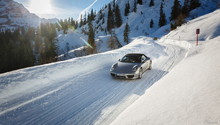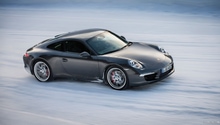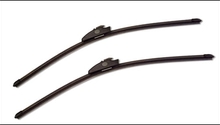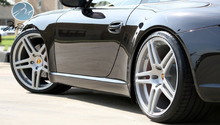Porsche 997: How Do 997 Engines Respond to Cold Weather?
Porsche 911's have always been considered a "do everything" kind of car, but how does it respond when the weather gets extremely cold? Here are some things to keep in mind when operating in colder climates.
This article applies to the Porsche 911 997 (2005-2012).
A Porsche 911 is not the most common car to use for winter driving, but that doesn't mean it's not up to the task. Porsche does a lot of testing in colder climates with their cars and they are doing it for a reason. There seem to be plenty of owners who live in places where the temperature drops quite low and spend time enjoying their 911 year round. Here are some things to keep in mind if you plan on following suit.

Component Breakdown
Oil
When the temperature drops, it is a good idea to change your oil to an oil that's more suitable for low temperatures. You would want to run a thinner viscosity because it will be easier for the engine to cycle it through its oil passages and will cause less strain on your oil system.
(Related Article: Porsche 997: How to Change Your Oil - Rennlist.com)

Tires
A good set of winter tires will help your car gain and keep traction in cold conditions. Traction will help your tires from spinning, causing your engine to not have to work harder to move the car. In any severe condition, you want the car to have as easy as a job as possible in moving itself around.
(Related Article: Porsche 997: Winter Tires Review - Rennlist.com)
Scheduled Maintenance
Due to the extreme nature of cold climate operation, it is a good idea to make sure that you adjust your scheduled maintenance to meet operating conditions that are going to require more out of your car. This would entail changing the oil and fluids more frequently and giving the car a good thorough cleaning on a regular basis. You want to keep any salt and slush from getting all over your engine and other mechanical components. Beyond having the right oil in the car, regularly inspect your coolant, and consider adding additional coolant or anti-freeze to its mixture, as it performs better in the cold than water.
(Related Article: Porsche 997: 5 Tips to Keep Your 911 Running For a Long Time - Rennlist.com)
Common Issues
Cylinder Scoring
The number one issue that seems to arise from cars operated in colder climates is cylinder scoring. This seems to be caused by the different expansion rates between the piston and the cylinder itself. The piston seems to soak up heat faster than the cylinder which leads to the scoring. It is most commonly found in low-mileage engines where the clearances are still very tight. Any engine with forged pistons will experience this to some degree, so excessive worrying is just that: excessive. With the proper oils and a functioning oiling system, you should not be afraid to start and drive your Porsche through the winter. Germany isn't exactly known for its warm summers, now is it?
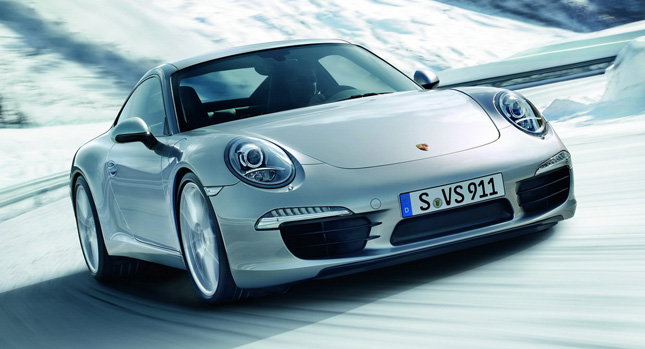
Related Discussions and Site
- Winter Driving of 997 - Rennlist.com
- Porsche 997: C2 or C4 in the Snow? - Rennlist.com
- Porsche 997: Winter Driving in Your 911 - Rennlist.com
- Warm Up Time Cold Weather - Rennlist.com
- 997s Usable in Snow - PistonHeads.com


